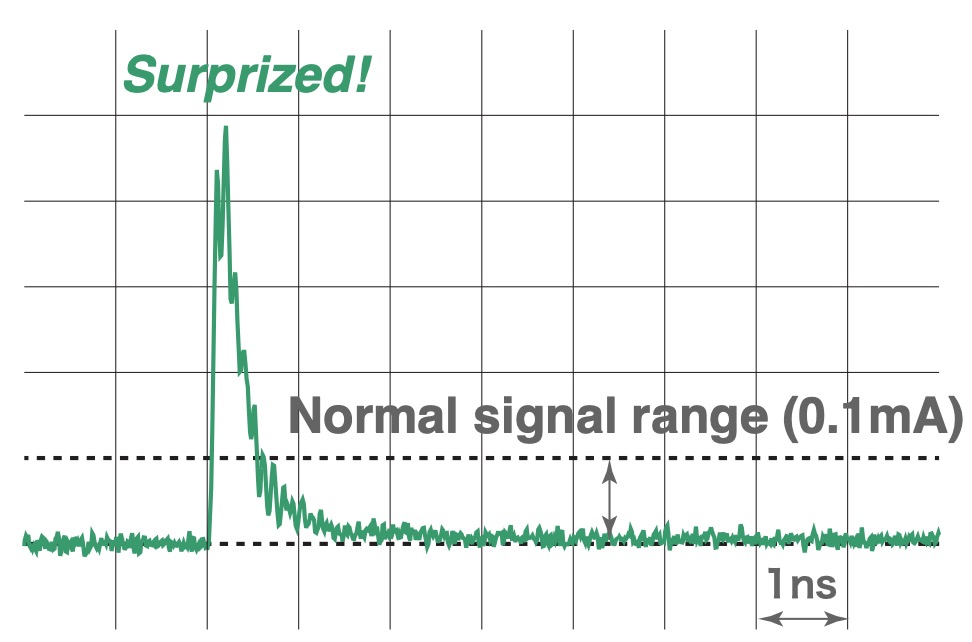
KOBAYASHI Daisuke Associate Professor
Sagamihara Campus
Nano Physics & Device Technology
Electron device/Electronic equipment
Aerospace engineering
Design and evaluation of sustainable and environmental conscious system
High-Performance Computing
Information security
Computer Systems
Startled Computers: Space makes semiconductors surprised
In Sci-Fi movies, androids are often depicted as having cold and emotionless character. We may have such impression because most of computers rely on digital processing in which everything is flatly divided into "1" or "0", but—would you believe it?—they are easily surprised and often get upset. It is caused by a strike of tiny invisible particles, fragments of exploding stars a.k.a cosmic rays, but the shock is significant. The shock makes a computer chip surprised and lose its memory, control, and even its fundamental ability to boot up. So, what will you do next?
Research field 1
Understanding How Computers are Surprised

The first step of our study is to understand how computers are surprised. This figure shows such a moment. We traced electrical signals from a computer chip like an electrocardiogram. You can see a large signal when a cosmic ray strikes the chip. This is the moment the chip is surprised. Compare the signal with the range for the normal operation of the chip. The signal is overpoweringly large. It's a huge shock. Computer chips must withstand such a shock. So, how? (The signal data were provided from Dr. Takahiro Makino at the Takasaki Institute of Advanced Quantum Science, the National Institutes for Quantum Science and Technology.)
Research field 2
New Laboratory
I'm looking forward to increasing the contents shown here with you.